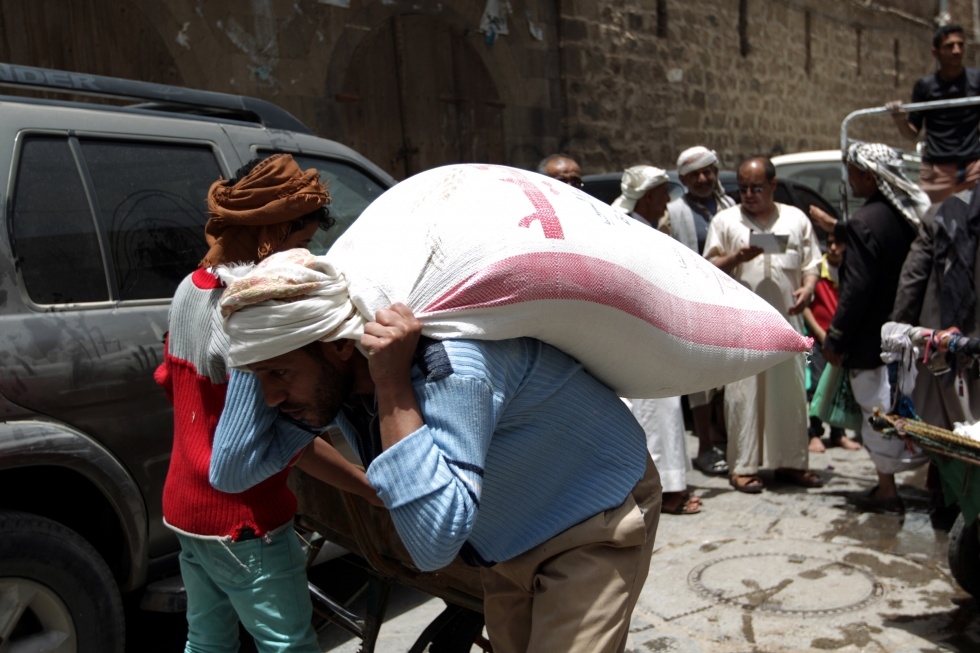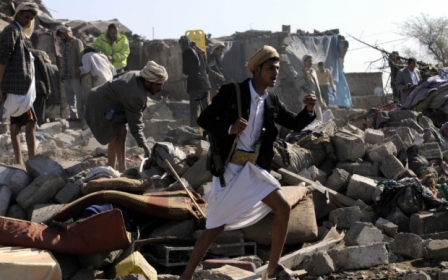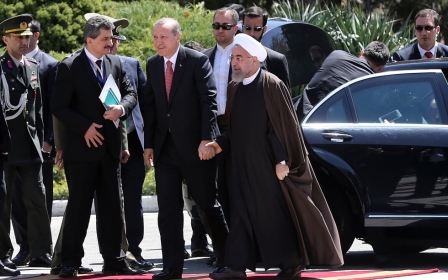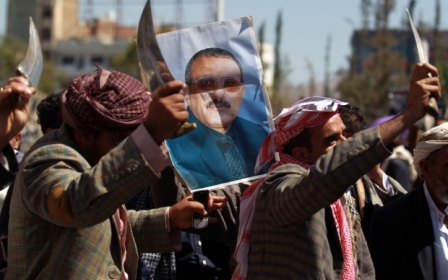UN to discuss further sanctions in Yemen as bombing continues

The United Nations Security Council is set to vote on Wednesday on a bill regarding the “catastrophic” situation in Yemen.
The six states of the Gulf Cooperation Council (GCC) and Jordan submitted a draft resolution of the bill to the Security Council on Monday calling for a complete Houthi withdrawal from areas they have occupied.
The draft bill demands that all parties in Yemen abide by the stipulations of the GCC initiative, a Saudi-backed agreement hammered out in November 2011 to stabilise the country after its Arab Spring inspired protests.
According to the deal, which was backed by all the GCC member states except Qatar, deposed president Ali Abdullah Saleh would have legal immunity and transfer power to Abd Rabbuh Mansour Hadi.
The international community, especially the GCC states and Hadi, still endorse the initiative, however, the takeover of the Yemeni capital Sanaa by Houthi rebels in September 2014 “put an end to the political system it helped create,” according to Farea al-Muslimi, a Carnegie Endowment scholar.
President Hadi took refuge in Riyadh two days after Saudi Arabia began leading a campaign of airstrikes against Houthi fighters and Saleh loyalists on 25 March.
The whereabouts of former president Saleh remain unknown – Hadi’s spokesperson said on Wednesday that the deposed leader was hiding in caves near his birthplace to the east of Sanaa.
If ratified by the security council, the new bill would demand that the Houthis return all weapons looted from state institutions and cease “provocative acts” that threaten the security of Yemen’s neighbours.
Yemen shares an 1,800-kilometre land border with Saudi Arabia, and fears of a spillover of Houthi militants from their stronghold in northern Yemen have led Riyadh to station large numbers of troops along the frontier.
Three Saudi troops have been killed since the Saudi-led bombing campaign began, reportedly by heavy fire from across the border.
Non-compliance with the draft bill would see a web of international sanctions against the Houthis tightened.
The GCC states and Jordan also demanded that Saleh’s son, Ali Ahmed Saleh, be sanctioned, with his considerable assets frozen and a travel ban imposed.
The younger Saleh served as Yemen’s ambassador to the UAE for almost two years before being dismissed on 30 March at the request of Abu Dhabi.
Airstrikes on Ali Abdullah Saleh's birthplace intensified overnight on Tuesday - the main army base in Sinhan, east of Sanaa, was targeted by warplanes.
Local residents also said that two people were killed and five injured when strikes hit a house in the district - these reports could not be immediately verified.
In the southern port city of Aden, where street battles and intense shelling from the sea have meant aid agencies have little or no access, the humanitarian situation has become "catastrophic," the Red Cross and Doctors Without Borders warned on Tuesday.
The UN Security Council is due to begin discussing the new proposal on Yemen from 10am (15:00 GMT).
The US, a key player on the 15-member Security Council, announced on Tuesday that it is stepping up arms sales to Saudi Arabia, as the Gulf kingdom heads into the third week of an air and sea campaign against the Houthi militias.
Saudi Arabia is already utilising 100 warplanes in its campaign, and says it has readied 150,000 troops, though it has no current plans for a ground invasion of Yemen.
Middle East Eye propose une couverture et une analyse indépendantes et incomparables du Moyen-Orient, de l’Afrique du Nord et d’autres régions du monde. Pour en savoir plus sur la reprise de ce contenu et les frais qui s’appliquent, veuillez remplir ce formulaire [en anglais]. Pour en savoir plus sur MEE, cliquez ici [en anglais].




